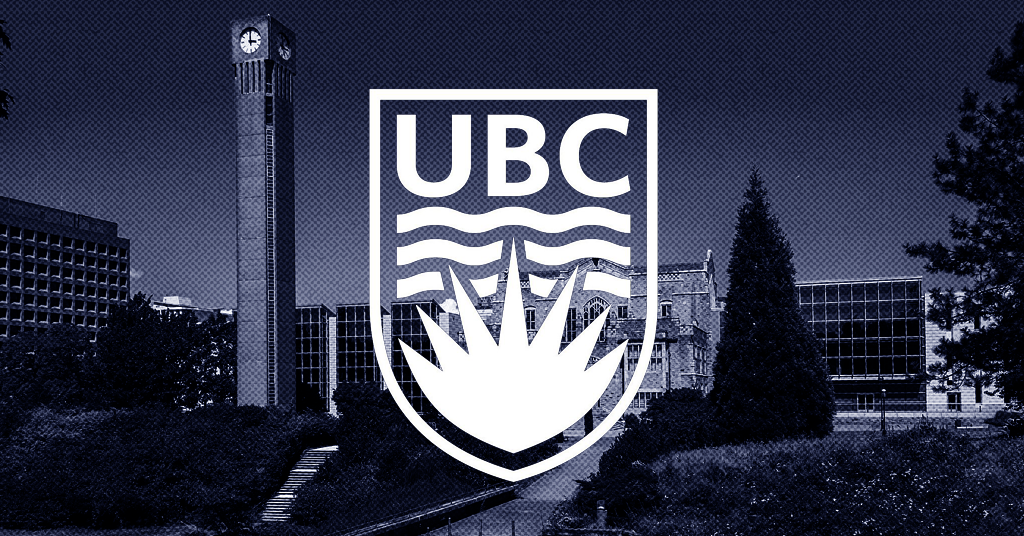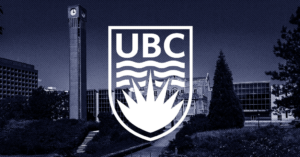
UBC Isn’t Releasing Key Campus COVID-19 Data, Experts Say That’s A Bad Idea
One public health official said it could create more ‘anxiety’
COVID-19 transmission data at the University of British Columbia isn’t being released, amid rising infections — with one local health official quoted warning it might make people more anxious.
Nearly one month into the semester and with COVID-19 cases rising across the province, UBC has yet to release any data regarding on-campus COVID-19 transmission.
During the September 21 UBC Board of Governors meeting, students and faculty learned the University is maintaining a “dashboard” of on campus infections — but it hasn’t yet been made public.
Vancouver Coastal Health medical health officer Dr. Alex Choi told the Board of Governors that there are “both pros and cons” to releasing the data, noting public health officials must weigh the benefits of “transparency” against “significant harms in terms of people’s private information being released accidentally,” suggesting it could open the door to people trying to “triangulate” who has been infected by COVID-19.
“We have also seen quite a lot of impacts on the overall learning environment and anxiety among those who are attending in other sectors where these things have been released, which is why we tend not to publicly make line-level data available,” Choi said.
Choi said there are pros and cons around data release — they’ve seen concerns about transparency, but have also seen significant harms around privacy from data release. She also said it could make people more anxious.
— Ubyssey News (@UbysseyNews) September 21, 2021
As noted by The Ubyssey, which first reported on the September 21 meeting, Dr. Choi also claimed rapid testing systems in areas with high vaccination coverage will avert only a few cases a semester.
UBC President Santa Ono agreed such precautions are a waste of money.
Ono thanks Choi for her data on rapid testing, with the estimated three cases averted a term with rapid testing once a week. He asks if other institutions are wasting money by testing twice a week.
— Ubyssey News (@UbysseyNews) September 21, 2021
Andrew Longhurst, a health policy researcher at Simon Fraser University says that concerns regarding anxiety are unfounded, especially when cases in the province are the highest they’ve been in six months.
“This idea that we need this grand paternalism, because people are going to be too anxious about the data is just at face value an absurd statement and a reflection, I think, of how many institutions and public health are continuing to be incredibly disingenuous to people,” Longhurst told PressProgress.
Post-secondary institutions across the US provide the public with COVID-19 dashboards, tracking the number of rapid tests performed, positive cases found and students and staff in isolation. No post-secondary institution in BC offers that information publicly.
“There’s no rational reason why basic public health information about people’s risk of infection and exposure to a highly infectious and potentially severe disease should be withheld,” said Longhurst.
Over 50,000 students are enrolled at UBC Vancouver, with tens of thousands living on-campus. UBC is also a workplace for thousands of service workers.
“The public health system is paying the price of not providing and not implementing these public health tools,” says Longhurst. “I think any way you cut it, why would we not opt for prevention, when it can both save lives and prevent morbidity, and also save money?”
Longhurst also said that public health leadership is “arguing against scientific consensus” by promoting the idea that rapid testing and data transparency aren’t effective at preventing onward transmission.
In lieu of publicly available transmission data, an undergrad student at UBC has created the UBC COVID Tracker, a crowd-sourced database of exposure events compiled through exposure notices submitted by students and staff.
After seeing fellow students post on social media about receiving exposure notifications, the student behind the COVID Tracker thought that it would be helpful to aggregate the notifications in one place.
“I think that not releasing that information and having people feel like information is being hidden from them is a greater source of anxiety because students feel like they can’t trust the institution, or they feel like they can’t trust our health care apparatus,” the student told PressProgress.
“This sort of paternalistic, patronizing take that only so much information is good for you doesn’t seem to be in line with what one would expect from a university,” they said.
When asked what they would like the university to do to keep students safe while on campus, the student cited increased data transparency, improved access to testing, enforcement of the vaccine declaration, and consistent messaging about what students and staff should do in case of infection or illness.
Eshana Bhangu, a representative from the Alma Mater Society, UBC’s student society, has been advocating for more comprehensive on-campus protections since July.
A letter from the Alma Mater Society in response to the UBC Leadership’s correspondence. @UBC is, undoubtedly, doing the bare minimum when it comes to ensuring the safety and security of the UBC community with the current return to campus plans. pic.twitter.com/Wy2EJmhEuo
— Eshana Bhangu (@eshanabhangu) July 29, 2021
“We applaud that student for taking that kind of initiative and playing that kind of a leadership role in the community,” Bhangu told PressProgress. “It’s really unfortunate that the burden of this has fallen on students.”
“The more things happen behind closed doors, the greater anxiety we see amongst the UBC community,” Bhangu said.
This comes at a time of sustained scrutiny of BC’s public health data transparency. During the third wave, the provincial government did not release community-level transmission data or variants of concern data even though internal documents , leaked to the Vancouver Sun, demonstrated that this data was being collected.
Recently, the government has come under fire for not issuing notifications to parents regarding in-school exposure events for the first three weeks of class. Critics have also charged that the government’s hospitalization counts are misleading, as they fail to account for COVID-19 patients who remain in hospital long after they are contagious.
BC continues to report hospitalizations as a subset of active cases, meaning ONLY people who are still infectious are counted
Add another ~50% to have a better idea of how many are actually in hospital in BC due to COVID, so roughly 450 instead of the 303 reported#bcpoli https://t.co/DvrOVOT2P8
— Penny Daflos (@PennyDaflos) September 27, 2021
In a statement to PressProgress, a representative from UBC indicated that Vancouver Coastal Health is in charge of releasing COVID case data.
“UBC works with VCH and Interior Health on contact tracing when requested but does not release case information for privacy reasons.”
Update (October 5): Vancouver Coastal Health failed to respond to multiple requests for comment from PressProgress prior to publication.
Following publication, VCH spokesperson Deana Lancaster provided PressProgress with a video recording of the meeting and a statement which said:
“Vancouver Coastal Health (VCH) is committed to ensuring all residents in our region, including the student and staff population at UBC, have access to safe and quality health care. When VCH Public Health is notified of a positive case in our region, including for an individual residing in the UBC community, they complete an investigation as efficiently as possible, identify close contacts of that person, and contact them directly to provide guidance on next steps. We do not post information about the case due to privacy concerns, unless Public Health is not able to reach all close contacts directly.”
Regarding Dr. Choi’s comments, Lancaster confirmed that “anxiety levels” are one of VCH’s considerations for not releasing the UBC COVID-19 dashboard:
“When discussing the UBC COVID-19 dashboard, Dr. Choi indicated Vancouver Coastal Health (VCH) does not share information about COVID-19 cases and contacts in the UBC community, because Public Health directly contacts those affected so public notifications are not necessary in most cases, and they can lead to issues under provincial privacy legislation. Further discussion among meeting participants touched upon the “pros and cons” of releasing case information, including the benefits of transparency balanced against the harms seen when patients’ private information has been released, and finally, she noted we have seen an impact on the learning environment and anxiety levels when case information in schools has been shared publicly.”
This article has been updated to include verbatim quotes from Dr. Choi.
Our journalism is powered by readers like you.
We’re an award-winning non-profit news organization that covers topics like social and economic inequality, big business and labour, and right-wing extremism.
Help us build so we can bring to light stories that don’t get the attention they deserve from Canada’s big corporate media outlets.
Donate



